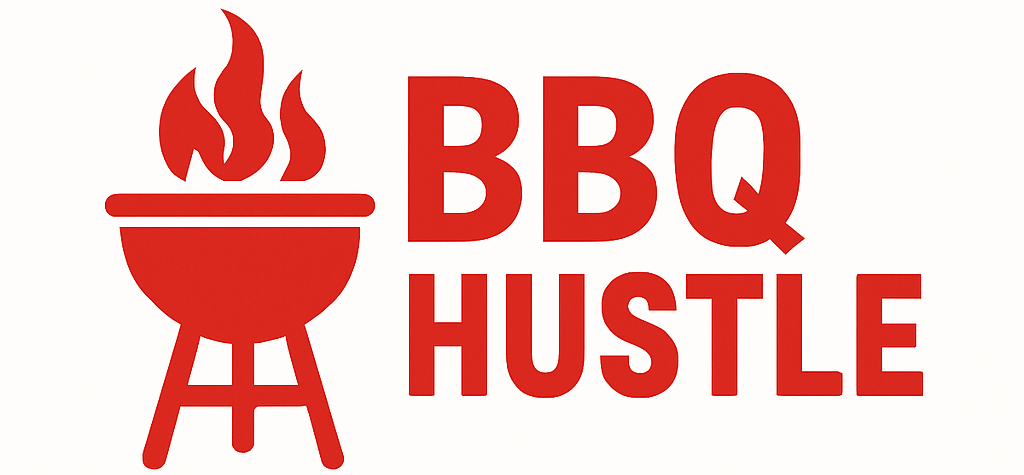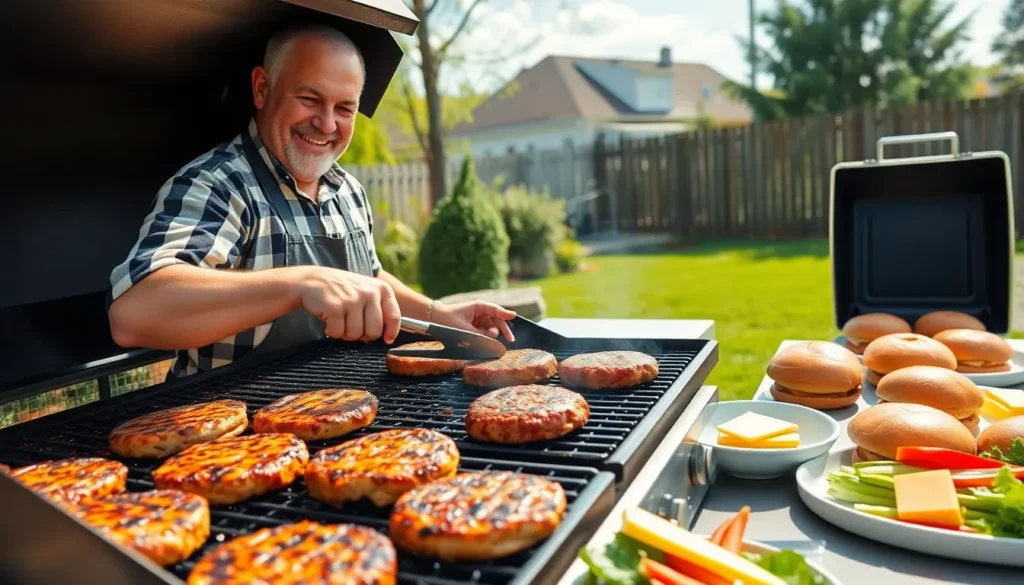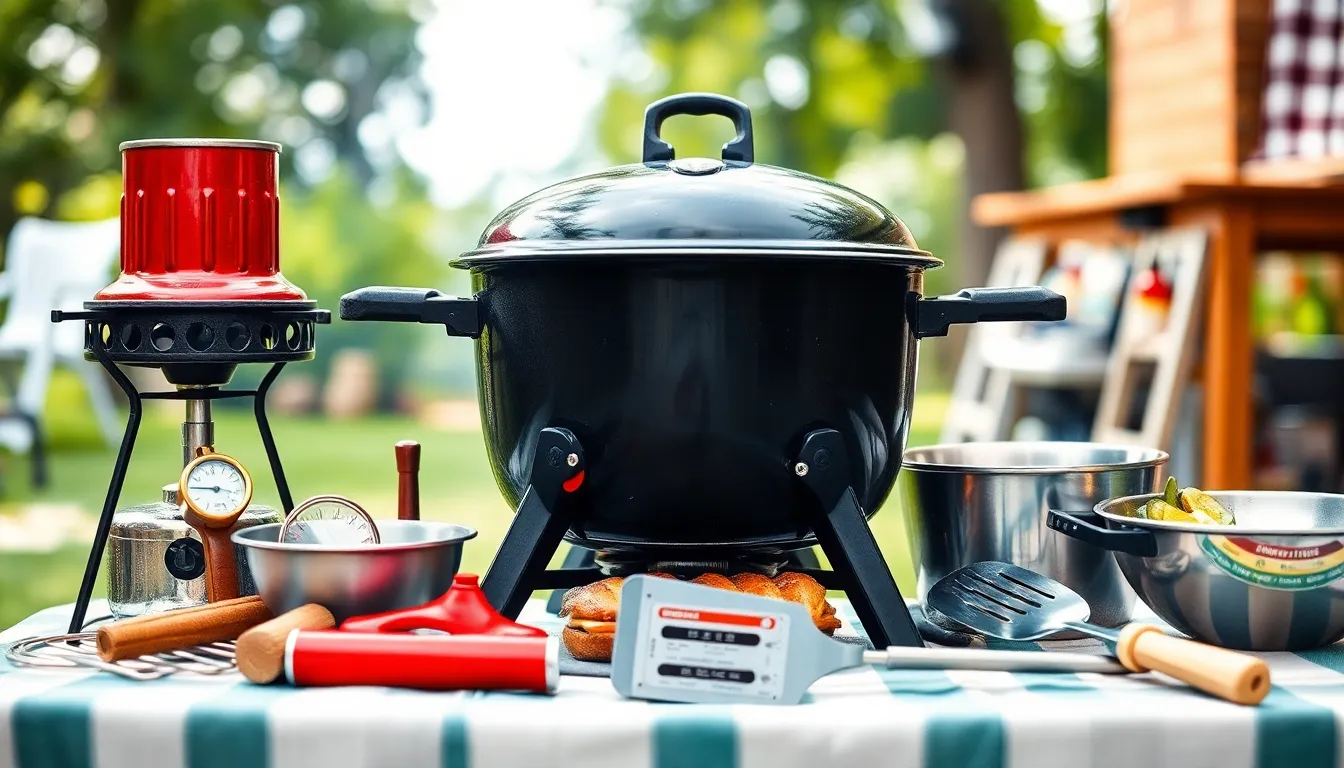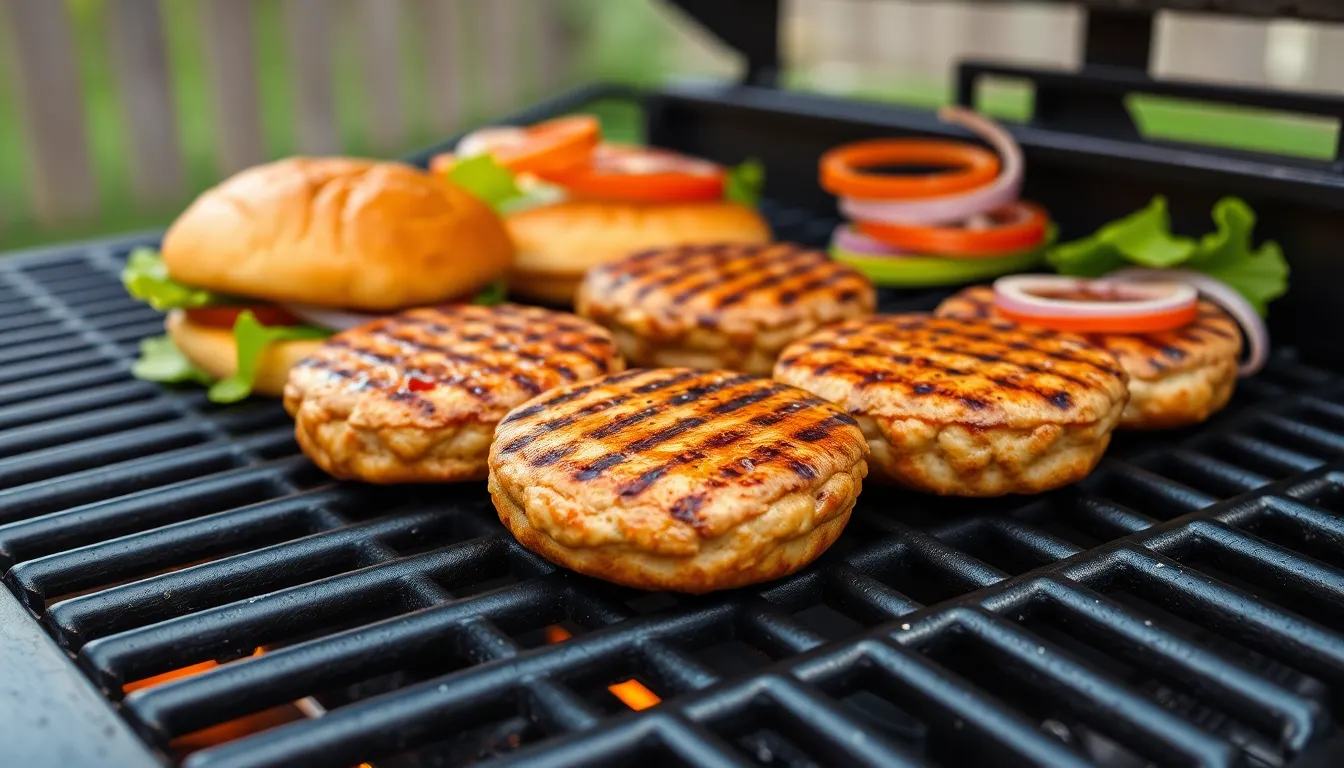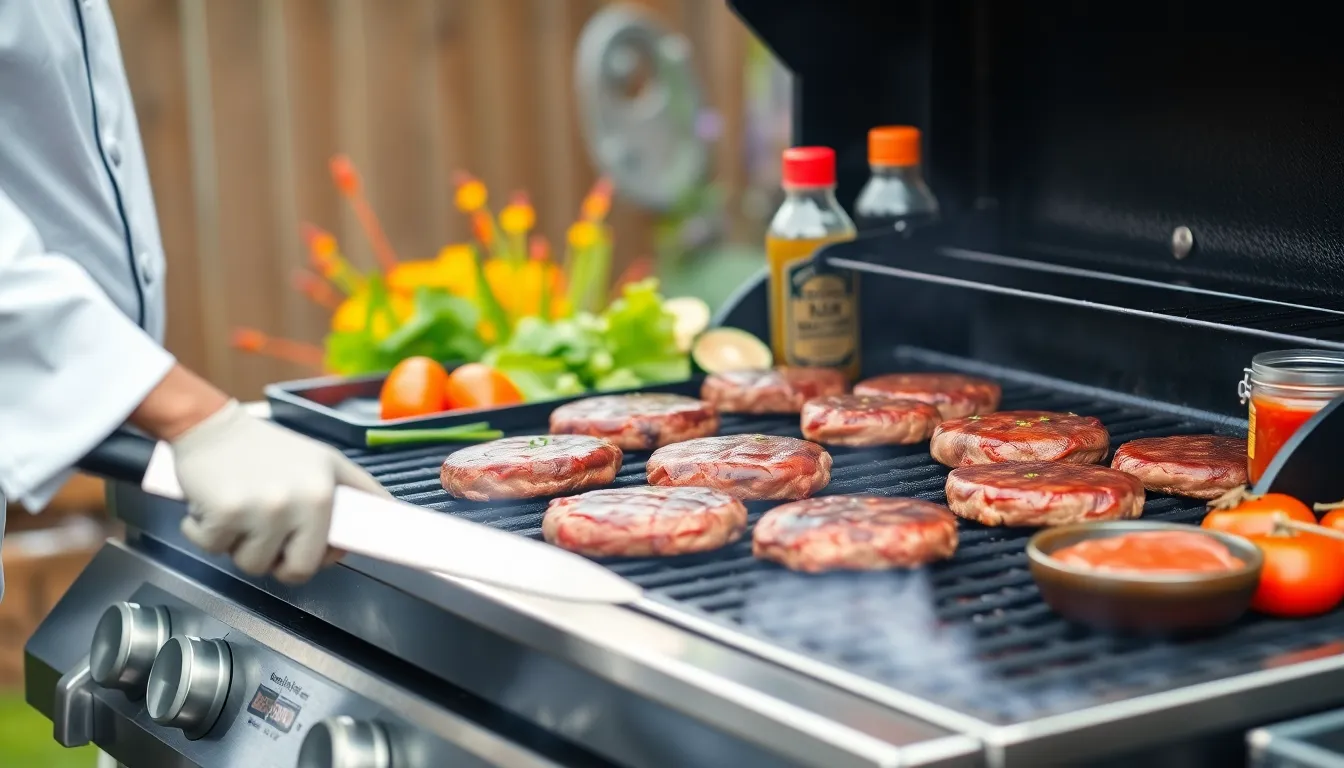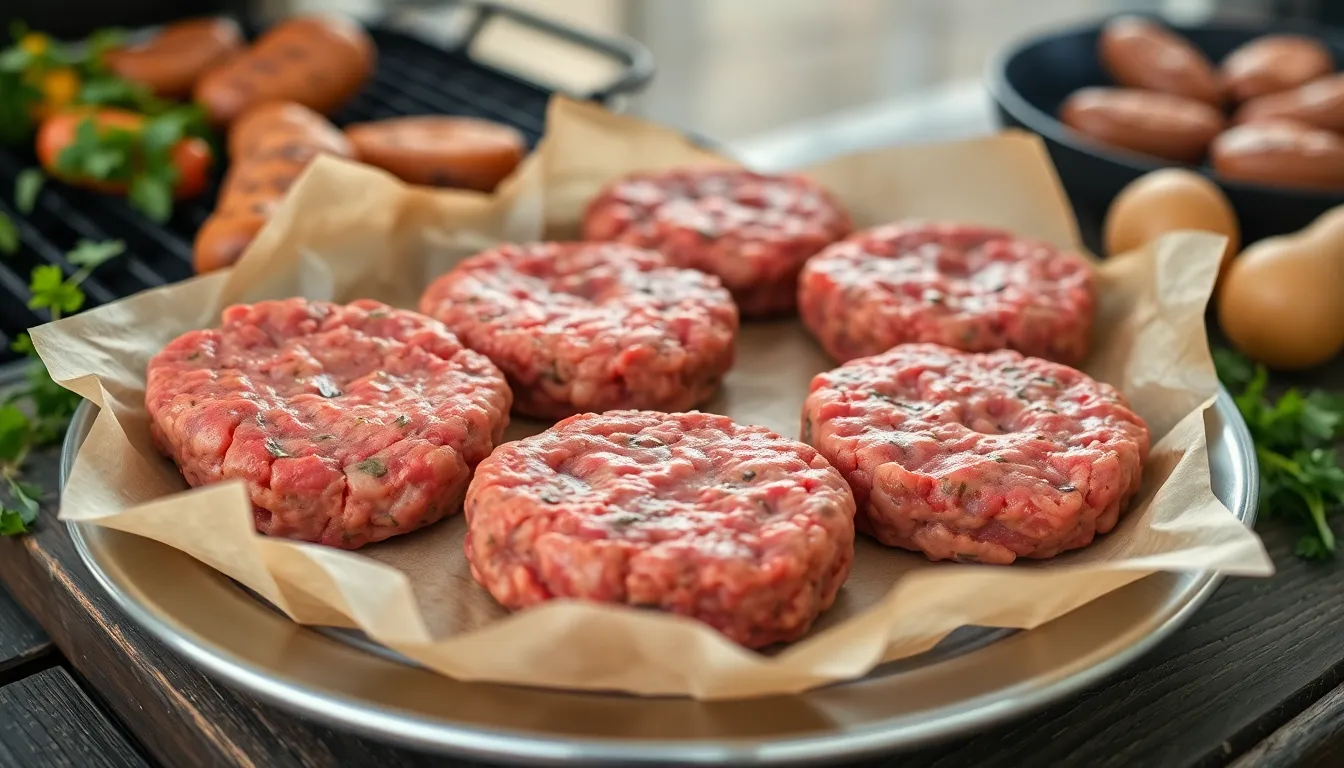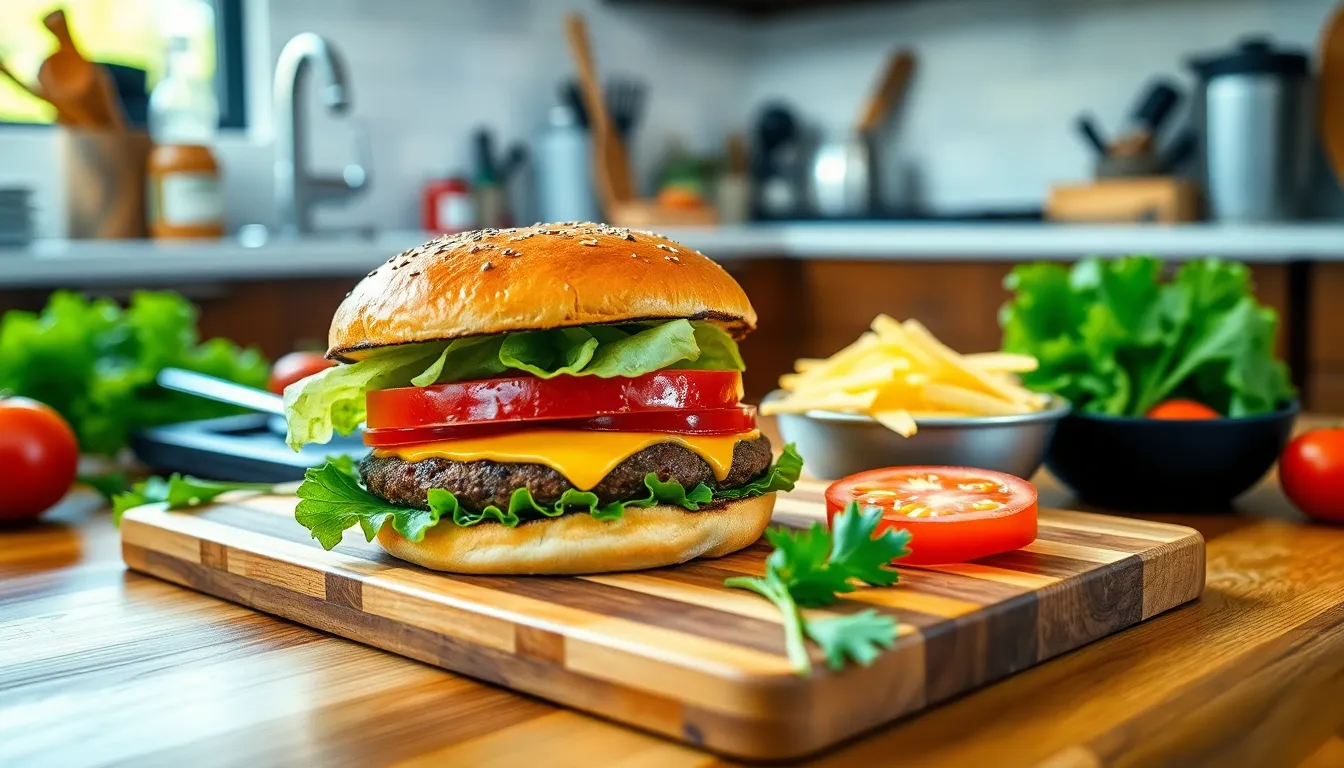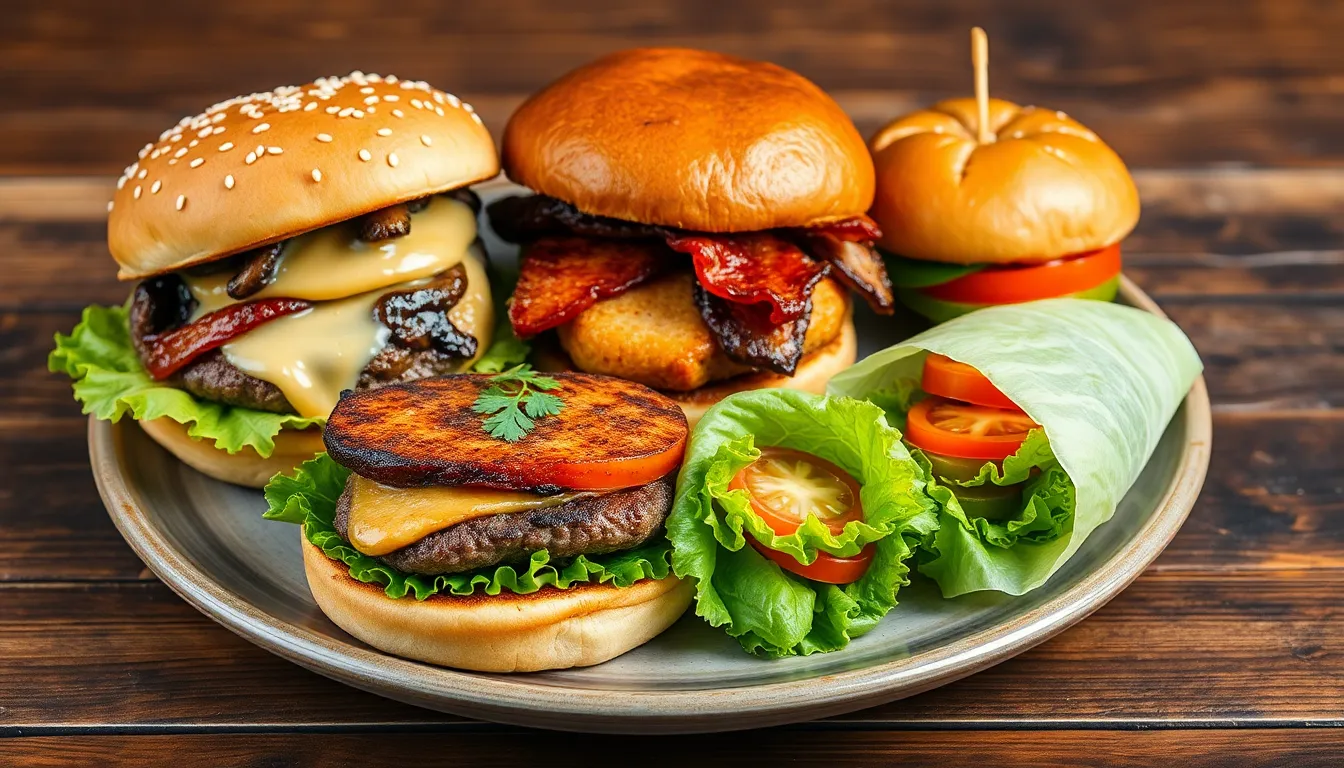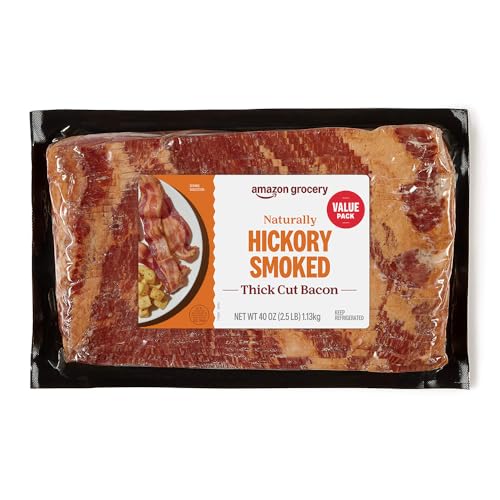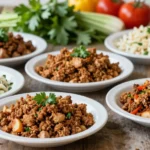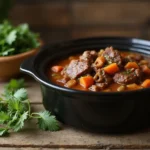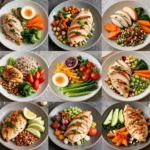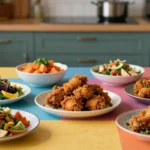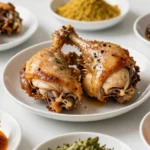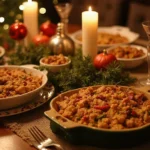There’s nothing quite like the sizzle of a perfectly seasoned patty hitting the hot grill grates. We’ve spent countless summer evenings perfecting our grilled burger technique and we’re excited to share the secrets that’ll transform your backyard barbecue game forever.
The best grilled burgers aren’t just about throwing meat on the grill – they’re about understanding the science behind the perfect patty. From selecting the right ground beef blend to mastering temperature control we’ve discovered that small details make all the difference between a mediocre burger and one that’ll have your guests begging for the recipe.
Our foolproof method delivers juicy restaurant-quality burgers with that coveted smoky char every single time. Whether you’re hosting a weekend cookout or craving that perfect burger for dinner tonight this recipe will become your go-to guide for grilling excellence.
Ingredients
We’ve selected these premium ingredients to create the ultimate grilled burger experience. Each component plays a crucial role in achieving that perfect balance of flavors and textures.
For the Burger Patties
- 2 pounds ground beef (80/20 blend)
- 1 teaspoon kosher salt
- 1/2 teaspoon freshly ground black pepper
- 1/2 teaspoon garlic powder
- 1/4 teaspoon onion powder
- 2 tablespoons Worcestershire sauce
- 1 tablespoon olive oil for grill grates
For the Burger Assembly
- 8 brioche hamburger buns
- 8 slices sharp cheddar cheese
- 2 large tomatoes, sliced 1/4 inch thick
- 1 large red onion, sliced into rings
- 8 leaves butter lettuce
- 4 tablespoons mayonnaise
- 2 tablespoons yellow mustard
- 2 tablespoons ketchup
Optional Toppings and Condiments
- 8 strips bacon, cooked crispy
- 1 avocado, sliced thin
- 4 pickle spears, sliced lengthwise
- 2 tablespoons barbecue sauce
- 1 tablespoon sriracha mayo
- 4 slices pepper jack cheese (alternative to cheddar)
- 1/2 cup caramelized onions
- 4 mushrooms, grilled and sliced
Equipment Needed
Having the right equipment transforms your burger grilling experience from amateur to professional. We recommend investing in quality tools that will serve you well for countless cookouts ahead.
Grill Selection
We prefer charcoal grills for their superior flavor development and higher heat capability. Charcoal creates that distinctive smoky taste and provides the intense heat needed for proper searing. Gas grills offer convenience and easier temperature control for beginners or busy weeknight cooking. Both options produce excellent results when used correctly.
Essential Grilling Tools
A chimney starter ranks as our top recommendation for charcoal users. This tool lights coals efficiently without lighter fluid and creates evenly heated coals in 15-20 minutes. We consider it indispensable for consistent results.
An instant-read meat thermometer ensures perfect doneness every time. Guessing internal temperatures leads to overcooked or undercooked burgers. We rely on this tool to hit precise temperature targets for medium, medium-well, or well-done preferences.
Preparation Equipment
A large mixing bowl provides adequate space for combining ingredients without making a mess. We find stainless steel bowls work best as they’re easy to clean and won’t retain odors.
Your clean hands or a fork work perfectly for mixing the burger mixture. We prefer hands for better control over the mixing process while avoiding overworking the meat.
Cooking Utensils
A sturdy grill spatula or long-handled tongs allow safe flipping and moving of patties. We recommend tools with extended handles to keep hands away from the heat. Wide spatulas support burger patties better than narrow ones and prevent breaking during flips.
| Equipment Type | Purpose | Why We Recommend It |
|---|---|---|
| Charcoal Grill | Primary cooking method | Superior flavor and higher heat |
| Chimney Starter | Lighting charcoal | Efficient, even heating in 15-20 minutes |
| Instant-Read Thermometer | Temperature checking | Ensures precise doneness levels |
| Mixing Bowl | Ingredient preparation | Adequate space for clean mixing |
| Grill Spatula/Tongs | Patty handling | Safe flipping and movement |
This equipment setup covers everything needed for professional-quality grilled burgers. We’ve tested these recommendations extensively and know they deliver consistent results every time.
Instructions
Now that we have our premium ingredients and equipment ready, let’s walk through the step-by-step process to create these restaurant-quality grilled burgers. We’ll guide you through each crucial stage to ensure perfect results every time.
Prep the Patties
We start by combining our ground chuck with the flavor enhancers in a large stainless steel mixing bowl. Add the Worcestershire sauce, minced garlic clove, onion powder, kosher salt, and black pepper to the ground beef. Gently mix these ingredients together using your hands, being careful not to overwork the meat as this can create tough burgers.
We divide the mixture into portions and shape them into patties that are slightly larger than our brioche buns. Make each patty about ½ to 1 inch wider than the buns to account for shrinkage during cooking. Press a small dimple into the center of each patty using your thumb to prevent puffing and ensure even cooking throughout the grilling process.
Prepare the Grill
We preheat our grill to medium-high heat, targeting a temperature range of 375°F to 400°F. For charcoal grills, we use our chimney starter to light the coals efficiently and wait until they develop a light ash coating. Gas grill users should preheat for 10-15 minutes with the lid closed to achieve the proper temperature.
We clean the grill grates thoroughly with a grill brush and lightly oil them with our olive oil to prevent the patties from sticking. This step ensures easy flipping and creates those beautiful grill marks we’re after.
Grill the Burgers
We place the patties directly over the heat source on our preheated grill grates. Cook the burgers covered for 3-4 minutes on the first side without pressing down on them, as this releases valuable juices. Flip the patties once using our sturdy spatula and cook for another 3-4 minutes.
We use our instant-read meat thermometer to check for doneness, following these internal temperature guidelines:
| Doneness Level | Internal Temperature |
|---|---|
| Rare | 125°F |
| Medium-rare | 135°F |
| Medium | 140-145°F |
| Medium-well | 150-155°F |
| Well done | 160-165°F |
For cheese lovers, we move the burgers to indirect heat, place sharp cheddar slices on top, and close the lid for 1 minute to achieve perfect melting.
Toast the Buns
We place our brioche buns cut-side down on the grill grates while the burgers rest. Toast them for 1-2 minutes until they develop a light golden color and slight char marks. This toasting step adds texture and prevents the buns from becoming soggy from burger juices and condiments.
Assemble the Burgers
We start building our masterpiece with the toasted bottom bun as our foundation. Place the rested burger patty on top, followed by our fresh vegetables and chosen condiments. Layer the lettuce, tomato slices, and onion rings according to your preference, then add any optional toppings like crispy bacon or avocado slices.
We cap each burger with the toasted top bun and serve immediately while everything is at peak temperature and freshness. The combination of our perfectly grilled patty, melted cheese, and fresh toppings creates the ultimate burger experience.
Pro Tips for the Perfect Grilled Burger
Mastering the perfect grilled burger requires attention to exact details that separate amateur efforts from professional results. We’ve gathered these essential techniques to help you achieve consistently exceptional burgers every time.
Choose the Right Ground Beef Ratio
Fresh ground beef with an 80/20 lean-to-fat ratio delivers the optimal balance for juicy, flavorful burgers. Never use frozen ground beef as it compromises both texture and taste. The 20% fat content provides necessary moisture and flavor while preventing dry, crumbly patties.
Create a Panade for Enhanced Texture
Incorporate a panade mixture into your ground beef for superior texture and moisture retention. Soak small bread pieces in milk, then combine with kosher salt, onion powder, black pepper, garlic, Worcestershire sauce, and Dijon mustard. This technique keeps burgers tender and adds layers of flavor that penetrate throughout the patty.
Form Patties with Strategic Sizing
Shape your patties slightly larger than your buns to account for shrinkage during grilling. We recommend making them ½ to 1 inch larger in diameter than the bun. Press a small indentation in the center of each patty using your thumb or spoon handle to prevent the burger from puffing up during cooking.
Avoid Overworking the Meat
Handle the ground beef mixture as little as possible during preparation. Overmixing compacts the meat and creates tough, dense burgers. Mix ingredients just until combined, then gently form patties by hand rather than using machines that compress the meat too much.
Master Temperature Control
Preheat your grill to medium-high heat between 375°F and 400°F for optimal cooking conditions. Use an instant-read thermometer inserted through the side of the patty for accurate temperature readings. This prevents overcooking and ensures food safety.
| Doneness Level | Internal Temperature | Total Cooking Time |
|---|---|---|
| Rare | 120-125°F | 4 minutes |
| Medium-Rare | 130-135°F | 5 minutes |
| Medium | 135-145°F | 6-7 minutes |
| Medium-Well | 145-155°F | 7-8 minutes |
| Well Done | 160°F+ | 8-9 minutes |
Time Your Cheese Addition Perfectly
Move burgers to indirect heat after flipping when adding cheese. Place cheese slices on top of the patties and close the grill lid for exactly 1 minute to achieve perfect melting without overcooking the meat.
Rest Before Serving
Allow finished burgers to rest for 5 minutes off the heat before serving. This crucial step redistributes juices throughout the patty, ensuring every bite remains moist and flavorful rather than losing juices when cut or bitten.
Make-Ahead Instructions
We understand that meal prep can transform your grilling experience from stressful to seamless. Planning ahead allows us to enjoy perfectly seasoned burgers without the last-minute rush while ensuring consistent results every time.
Patty Preparation Timeline
Our make-ahead approach centers on proper patty preparation and storage techniques. Form your seasoned ground beef patties according to our recipe instructions and create that essential shallow dimple in the center of each patty.
Short-term storage works perfectly for weekend cookouts or planned gatherings. We can refrigerate formed patties for 1 to 2 days in advance by placing them on a plate lined with parchment paper. Cover the patties tightly with plastic wrap to prevent them from drying out and absorbing other flavors from the refrigerator.
Long-term storage extends our meal prep capabilities significantly. Freeze prepared patties for up to 2 months by layering them between sheets of parchment paper in airtight packaging. This method prevents the patties from sticking together and makes it easy to remove individual portions as needed.
| Storage Method | Duration | Temperature | Best Practice |
|---|---|---|---|
| Refrigerated | 1-2 days | 32-40°F | Wrap tightly with plastic wrap |
| Frozen | Up to 2 months | 0°F or below | Layer between parchment paper |
Thawing and Grilling Frozen Patties
Frozen patties require proper thawing for even cooking results. Move frozen patties to the refrigerator 8 to 12 hours before grilling to ensure complete thawing. Never thaw patties at room temperature as this creates food safety risks and uneven cooking.
We recommend removing make-ahead patties from refrigeration 15 to 20 minutes before grilling to bring them closer to room temperature. This technique promotes more even cooking and reduces the risk of a cold center with an overcooked exterior.
Storage and Reheating
Properly storing leftover grilled burgers ensures we can enjoy these delicious patties for days after our initial cookout. We recommend placing cooled burger patties in an airtight container and storing them in the refrigerator for up to 3-4 days maximum. Room temperature storage should never exceed 2 hours to maintain food safety standards.
Freezing leftover burgers extends their shelf life significantly when we need longer storage options. Wrap individual patties in plastic wrap or aluminum foil before placing them in freezer-safe containers or bags. Frozen cooked burgers maintain their quality for up to 3 months when stored at 0°F or below.
When reheating our stored burger patties, we must use gentle methods to preserve their juiciness and prevent overcooking. The oven method works exceptionally well for maintaining texture and flavor. We preheat our oven to 350°F and place the burger patties on a baking sheet for approximately 8-10 minutes until heated through.
| Reheating Method | Temperature | Time | Best For |
|---|---|---|---|
| Oven | 350°F | 8-10 minutes | Multiple patties |
| Stovetop | Medium-low heat | 3-4 minutes per side | Single servings |
| Microwave | 50% power | 30-second intervals | Quick reheating |
Stovetop reheating offers excellent control over the warming process. We place the patties in a covered skillet over medium-low heat and warm them gently for 3-4 minutes per side. This method allows us to monitor the patties closely and prevents them from drying out during the reheating process.
Microwave reheating requires careful attention to prevent the meat from becoming tough or rubbery. We use shorter intervals at lower power settings, typically 50% power for 30-second intervals, checking the internal temperature between each heating cycle. This approach ensures even warming without compromising the burger’s texture.
Critical food safety practices must guide our reheating efforts. We avoid reheating burger patties multiple times, as this increases the risk of bacterial growth and significantly degrades the meat’s quality. Once reheated, we consume the burgers promptly rather than storing them again for future use.
Serving Suggestions
The foundation of an exceptional burger experience begins with selecting the right bun to complement our perfectly grilled patties. Brioche buns elevate richer burger styles with their buttery texture and slight sweetness. Classic sesame seed buns provide the traditional burger experience most people recognize and love. For those following a low-carb lifestyle, lettuce wraps offer a fresh alternative that keeps the focus on our expertly seasoned meat.
Our classic toppings create the timeless burger profile that never disappoints. Fresh lettuce adds essential crunch while ripe tomatoes contribute juicy sweetness. Red onions provide sharp bite and pickles deliver that tangy contrast our taste buds crave. The condiment trio of ketchup, mustard, and mayonnaise rounds out the traditional flavor profile.
We can transform our grilled burgers into gourmet creations with specialty combinations that take flavor to the next level. The Mushroom Swiss variation features sautéed mushrooms paired with melted Swiss cheese for an earthy, sophisticated taste. Our Bacon BBQ option combines crispy bacon strips with tangy BBQ sauce and either cheddar or Monterey Jack cheese, all nestled in a buttery brioche bun.
Health-conscious diners can enjoy our Keto-friendly option featuring cheese, mayonnaise, fresh tomatoes, onions, and pickles wrapped in crisp lettuce leaves. This combination delivers all the burger satisfaction without the carbs. Our Whole30 compliant version uses approved mayonnaise or burger sauce with fresh arugula, mustard, and tomatoes to create a clean eating masterpiece.
| Burger Style | Cheese | Special Toppings | Bun Choice |
|---|---|---|---|
| Mushroom Swiss | Swiss cheese | Sautéed mushrooms | Standard sesame |
| Bacon BBQ | Cheddar or Monterey Jack | Crispy bacon, BBQ sauce | Brioche |
| Keto Style | Any cheese | Mayo, tomatoes, onions, pickles | Lettuce wrap |
| Whole30 | None | Compliant mayo, arugula, mustard | Lettuce wrap |
Temperature control remains crucial even during the serving phase. We recommend allowing our burgers to rest for about 5 minutes after removing them from the grill. This resting period lets the juices redistribute throughout the meat, ensuring every bite delivers maximum flavor and moisture. During this time, we can prepare our buns and arrange our chosen toppings for efficient assembly.
Conclusion
We’ve equipped you with everything needed to master the art of grilling exceptional burgers. From selecting the perfect 80/20 ground beef blend to mastering temperature control these techniques will transform your backyard cookouts into memorable dining experiences.
The beauty of this grilled burger recipe lies in its versatility. Whether you’re preparing a quick weeknight dinner or hosting a weekend gathering these methods ensure consistently delicious results every time you fire up the grill.
Remember that great grilling is about patience and practice. Trust the process let your burgers rest and don’t be afraid to experiment with different toppings and variations. Your guests will notice the difference and you’ll have the confidence to create restaurant-quality burgers at home.
Frequently Asked Questions
What’s the best ground beef ratio for grilling burgers?
The ideal ground beef blend is 80/20 (80% lean meat to 20% fat). This ratio provides the perfect balance of flavor and moisture, ensuring your burgers stay juicy while developing a beautiful char on the grill. Avoid leaner cuts as they tend to dry out during cooking.
How long should I grill burgers for medium doneness?
For medium doneness, grill burgers for approximately 4-5 minutes per side, depending on thickness. Use an instant-read thermometer to check for an internal temperature of 160°F for medium. Always prioritize temperature over timing for food safety and perfect results.
Should I press down on burgers while grilling?
Never press down on burgers while grilling! This squeezes out the flavorful juices that keep your burgers moist and delicious. Instead, let them cook undisturbed, flipping only once during the grilling process for the best results.
How do I prevent burgers from shrinking on the grill?
Form patties slightly larger than your buns and create a small indent in the center with your thumb. This dimple prevents the burger from puffing up and helps maintain its shape. Avoid overworking the meat when forming patties.
Can I make burger patties ahead of time?
Yes! You can refrigerate formed patties for 1-2 days or freeze them for up to 2 months. Place parchment paper between patties and store in airtight containers. Thaw frozen patties in the refrigerator before grilling for best results.
What temperature should my grill be for burgers?
Preheat your grill to medium-high heat (around 375-400°F). This temperature allows for proper searing while cooking the interior evenly. For charcoal grills, arrange coals for direct and indirect heat zones to control cooking better.
How do I know when my burger is done without cutting it?
Use an instant-read meat thermometer inserted into the thickest part of the patty. For food safety, ground beef should reach 160°F internal temperature. The burger should also feel firm to the touch when properly cooked.
What’s the best way to melt cheese on burgers?
Add cheese during the last 1-2 minutes of grilling. Close the grill lid to create an oven effect that melts the cheese evenly. For extra melting power, add a tablespoon of water to create steam before closing the lid.
How long should burgers rest after grilling?
Let grilled burgers rest for 2-3 minutes after cooking. This allows the juices to redistribute throughout the meat, ensuring maximum flavor and moisture when you take that first bite. Cover loosely with foil during resting.
Can I reheat leftover grilled burgers?
Yes, store leftover burgers in the refrigerator for up to 3 days. Reheat gently in a 350°F oven for 10-15 minutes, or on the stovetop over medium-low heat. Add a splash of water to prevent drying out during reheating.
